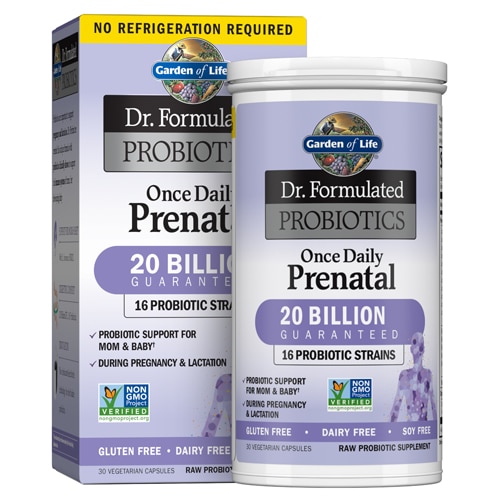For millions of women, getting pregnant can be much more frustrating than figuring out why your newborn is crying constantly or what will ensure your baby sleeps soundly.
If you’re one of the estimated 10 percent of American women age 15 to 44 who encounter trouble getting pregnant or staying pregnant, it might be tempting to grasp at anything that’ll help with fertility — a magical fruit or the perfect diet, for example.
Unfortunately, there’s no magical fruit or perfect diet that’ll guarantee conception. However, there is a nutritional path you can follow that’ll aid your quest for motherhood, and you don’t need to make radical adjustments to your diet.
“Small changes to your diet can make a huge difference,” says Dr. Barbara Stegmann, a reproductive endocrinologist at Aspire Fertility.
We’ve boiled down dietary advice from Stegmann and other experts into the following 10 tips.
1. Try the Mediterranean diet.
As we mentioned before, adhering to any diet, including the Mediterranean diet, won’t automatically put you on the road from conception to cradle. However, a recently published study indicates the Mediterranean diet can improve fertility.
The study, published in the journal Human Reproduction, found that women who stuck to a Mediterranean diet during the six months before undergoing in vitro fertilization (IVF) improved the likelihood of achieving a successful pregnancy and birth by 65 percent to 68 percent.
The fertility-promoting diet included more fresh vegetables, fruit, whole grains, legumes, fish oil and olive oil, and less red meat.
The study looked at 244 women in Greece age 22 to 41 who weren’t obese. Researchers discovered that women who’d been consuming a largely Mediterranean diet had better odds of becoming pregnant through IVF than women who just dabbled in Mediterranean-style eating or didn’t adhere to that kind of diet at all. However, the positive results were limited to women under age 35.
The researchers cautioned that study’s finding can’t be generally applied to:
- All women trying to become pregnant.
- Obese women.
- Women undergoing IVF treatment elsewhere in the world.
2. Trim the trans fats and saturated fats.
Artery-clogging trans fats are just plain bad for you, and the reviews for saturated fats are mixed.
Sources of trans fats include fried foods like doughnuts, and baked goods like cakes and cookies, according to Becky Kerkenbush, a registered dietitian at Watertown Regional Medical Center in Wisconsin. As for saturated fats, you’ll most often find them in lamb, pork, fatty beef, poultry with skin, butter, lard, cream, cheese, palm oil and palm kernel oil.
3. Bump up the healthy fats.
While you’re reducing the amount of trans fats and saturated fats in your diet, you also should boost the amount of monounsaturated fats. These healthy fats include avocados, peanut butter, nuts, seeds, salmon, tuna, olive oil, canola oil, peanut oil, sesame oil and safflower oil. Registered dietitian nutritionist Juliana Shalek, owner of The Nutrition Suite LLC, says benefits of these fats include decreasing potentially harmful inflammation.
4. Focus on folic acid.
Folic acid is beneficial because it’s one of the few nutrients that can help a would-be mother avoid neural tube birth defects, Stegmann says. Those defects involve the brain, spine or spinal cord.
To add folic acid to your diet, take folic acid supplements, or eat folic-rich foods like collard greens, asparagus, kale, citrus fruit, peas, beans and grains, Shalek says.
Keep in mind that, according to Harvard Medical School, folic acid won’t improve fertility.
5. Cut back on caffeine.
Generally, pre-pregnancy caffeine consumption should be limited to a daily range of 150 milligrams to 300 milligrams. An eight-ounce cup of coffee contains nearly 100 milligrams of caffeine. While evidence about the link between caffeine (which triggers a number of potentially harmful side effects) and fertility isn’t conclusive, it’s best to be on the safe side and curtail your Starbucks fix.
6. Slow down on the spirits.
Harvard Medical School says that for a woman trying to become pregnant, alcohol should be consumed in moderation.
Alcohol affects the adrenal glands, which regulate hormones. Messing with your hormones can lead to poor-quality eggs and a lower sex drive, Stegmann says. Alcohol also can cause birth defects, even before a woman realizes she’s pregnant.
7. Stick to water.
Harvard Medical School says good ol’ H20 is your best bet for staying hydrated, which is critical to your overall health. Shalek suggests aiming for 64 ounces of water per day. And by no means should you sip sugary soda, as Harvard says it can promote infertility.
8. Eat foods high in antioxidants.
Antioxidants protect the body from damaging free radicals. Shalek recommends antioxidant-rich foods such as berries, nuts and leafy green vegetables.
9. Consume more plant protein.
As a whole, sources of plant protein tend to be healthier than sources of animal protein. To add more fertility-friendly plant protein to your diet, turn to foods like nuts, seeds, beans, legumes and tofu, Kerkenbush says.
10. Go for whole grains.
Picking slowly digested, fiber-rich carbohydrates like whole grains can improve fertility by keeping blood sugar and insulin levels in check, according to Harvard Medical School. Kerkenbush recommends whole grains such as brown rice, wild rice, black rice, oats, barley, quinoa, rye, amaranth and millet.




